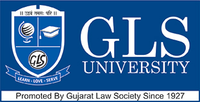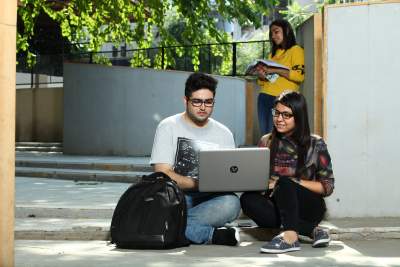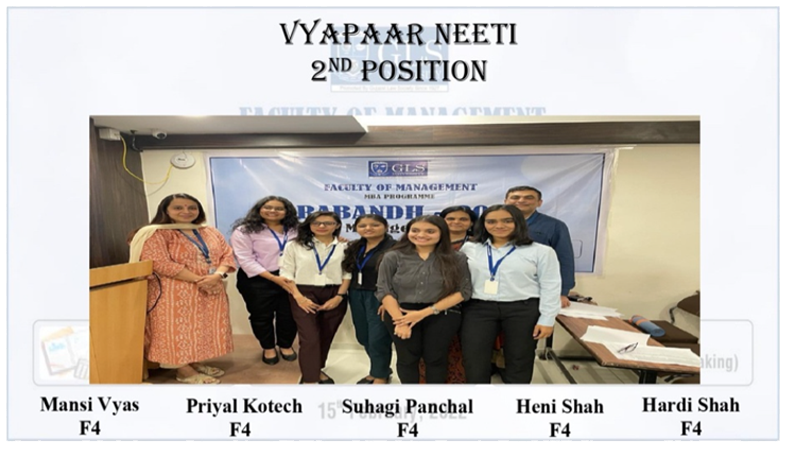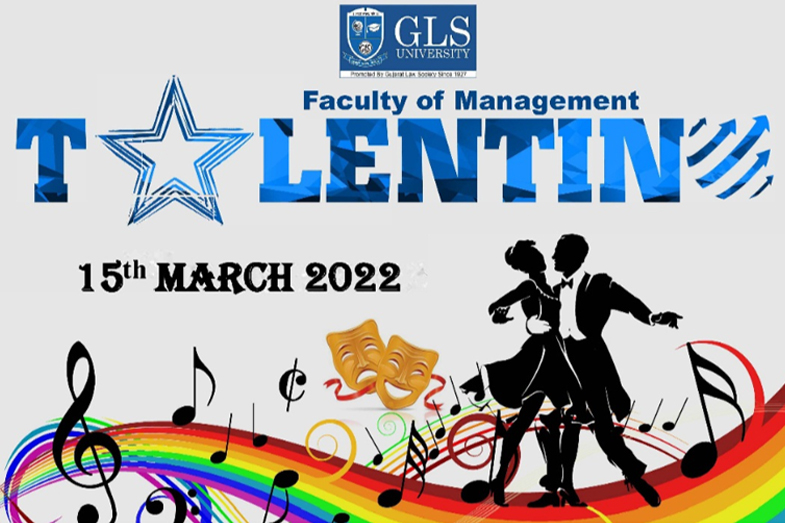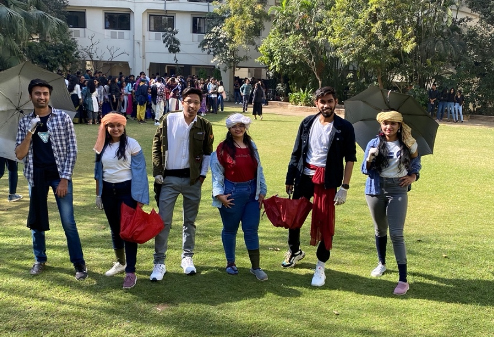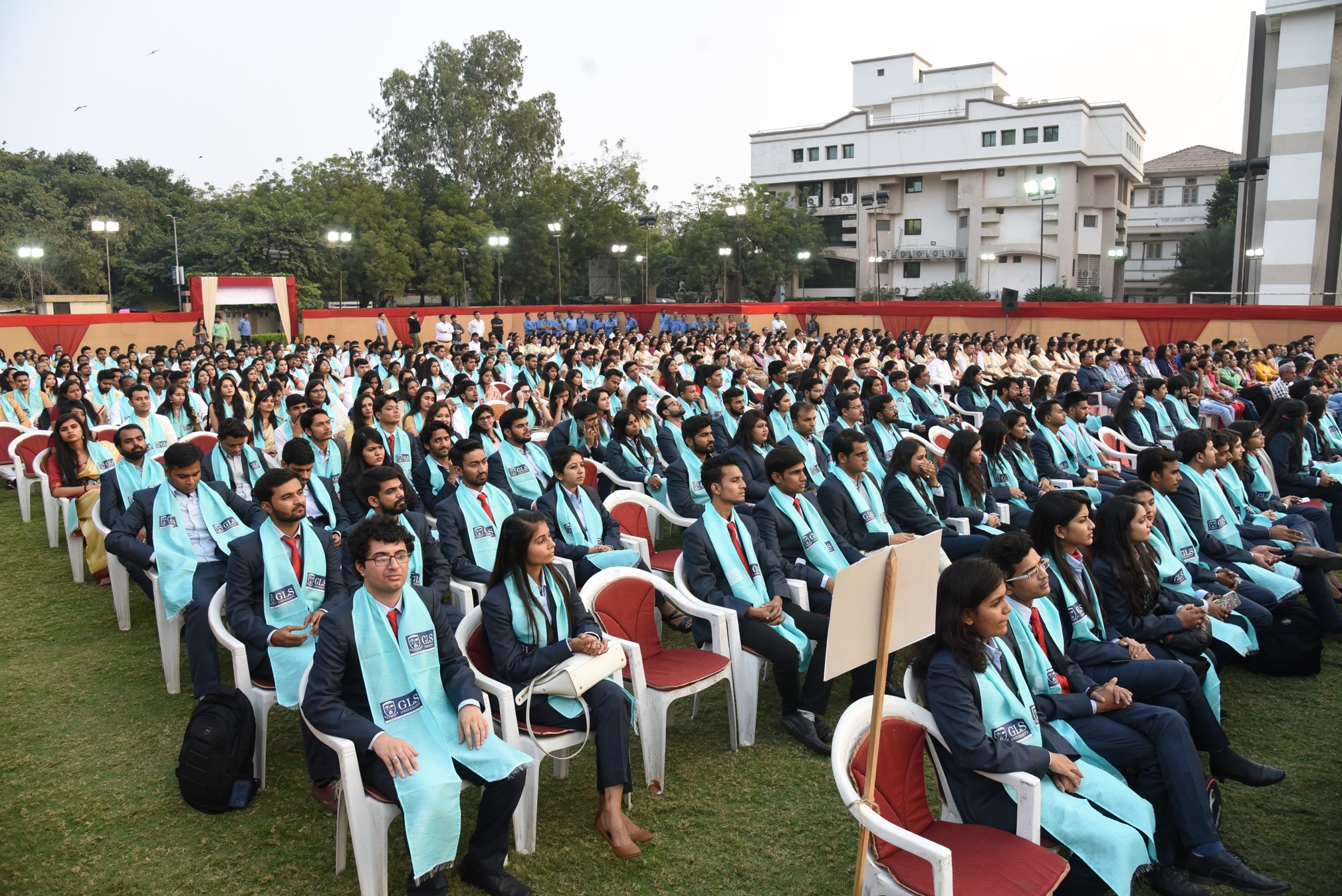Knowledge Exploration
Academic Innovation
We, at the institute believe in opening up new horizons in leadership and way of leading and thus help participants appreciate the dynamic changes that are taking place in the field of management education and development in view of global competition. In our quest for this competitive advantage, we have initiated several innovative action-oriented activities.
Apart from the popular pedagogical tools like Case studies, Role-plays, Presentations, Management games & Seminars, we have adopted innovations like Spare-time learning, Mentor Group, Live Projects and Students' club to illustrate a few.
Spare-time learning:
During their spare time, students and faculties join hands to explore management theories by exploring empirical researches and relating the same with the modern practices in management.
Mentor group:
Each faculty (Mentor) and a group of students who share common interest in a specific area of management or inclination towards a common industry, come together and the faculty mentors the group of students by imparting required knowledge to provide them insights and conceptual clarity in their shared interest area.
Live Projects:
The institute by virtue of exploring its corporate ties, invites corporates to accommodate selected students as per the requirement of the industry or company to get first hand experience of corporate assignment. So far, students have undertaken live projects at reputed companies like Mudra Communications, Adani Group, Suzlon Energy Ltd., One Advertising, GSFC, to name a few.
Students' Feedback:
Being a responsive organization, the institute seeks regular feedback from the students with respect to their satisfaction and expectation from the faculty and execution of various academic pursuits by the institute in order to utilize the feedback as a tool for planning future activities and understanding the scope for improvement.
Approach & Framework
PGDM has been designed as a unique course with perfect blend of education, industry experience and innovative self learning pedagogies, which formulate the core of unique approach towards management education.
The entire course structure has been designed keeping in mind constant learning from conventional educational training comprising of four rigorous terms:
- Building foundation on business formats, channels and processes, macro economic scenario, communications, and operations research
- Sensitization towards different functional areas of Management/business organisation
- Business Implementation and Management at advanced level including the chosen career area (specialization)
- Business Expansion and specific business (specialization) skill set impartment through advanced courses.
The programme has been devised to give a dual specialization to the students in the areas of their preference. The student has an option of doing his major or minor in one of the following thrust areas:
- Marketing Management
- Financial Management
- Human Resources Management*
The curriculum is divided in a mix of core courses, specialization courses and electives. The framework of the curriculum has been conceptualized to provide the participant a globally relevant management perspective along with honing the personal skills inculcating leadership abilities to manage innovative ventures in current techno-economic domain.
The entire curriculum has been built in strict adherence to the AICTE’s latest model curriculum for PGDM programme.
* HRM is offered as minor specialization
PGDM - Immersion
Global Immersion (Rural/International/Simulated Enterprises)
The prime objective behind offering International Immersion as part of the PGDM programme is to ensure a global orientation/ perspective, through participation and understanding of international practices in a selected country's institutes/ organizations. This participation and understanding needs to be directly relevant to one of the various identified areas/domains of Business and Entrepreneurship. This may result in a study of cultural, social, economic & political environment of countries chosen for immersion.
Satisfactory completion of International Immersion is one of the prerequisites for graduation from PGDM. It carries 4 course credits. The total duration of International Immersion is 15 days:
Objectives
- To develop a global mindset, which is a critical factor for effective executive /entrepreneurial career
- To appreciate and analyze different business practices as contingent upon the socio-cultural and economic contexts.
- Indentify, comprehend and apply - business practices globally relevant in the context of
- some of businesses/industry verticals/academic topics (through a visit abroad)
- rural development practices related to issues/opportunities in India (through rural immersion)
- student's own business idea/model/domain (through immersion of simulated enterprises)
Students may choose the three alternatives to complete this requirement.
These are:
- Undertaking a visit to a foreign country
- Rural Immersion
- Simulated enterprises
Dissertation
Students opt for industry project for fulfilling the requirements of dissertation. Students use the learning and cases based on their project work as well as continuing industry internship to enrich the industry project.
Objectives:
- To enhance and apply strategic and analytical skill set to macro environment to industry and an organization using multidisciplinary perspective
- To apply some of communications, marketing, management and business model and techniques to understand challenges in industry and emerging trends
- To draw best practices in industry – in Indian and global context
- To identify critical factors for generating key decision options and propose new tools/techniques/methods and processes for analysing critical factors leading effective decisions
Industry Project Framework
- The students select any one of Industry/segment vertical or academic topics based on which they wish to study industry problem pertaining to their career interest. For example, a student choose to work on Strategic Marketing in Event Management vertical, or Strategic Brand Management across other segments in management domain.
- The focus of the dissertation is on the critical analysis of key elements, future prospects and present it as a framework or a model which will guide the practices in industry.
- As a part of the next step, One needs to consider the challenges and key trends (out of published sources) being faced in a particular industry vertical/ academic discipline using either industry wide or organisation level diagnostic problem solving exercise and propose innovative solutions/models approaches.
- The students bring in innovativeness and strategic thinking approach to the entire analysis and perceive future opportunities and growth prospects. Along with or apart from this, the students try to spot a breakthrough innovation/process or idea in the said field.
- Students ideally bring in the back up of some exploratory research work through qualitative research and quantitative projections about the industry/segment from the secondary sources.
Pedagogy
The overall structure of the pedagogy involves the following learning process:
- Classroom learning: Lecture/discussions
- Small Group works
- Simulations and role plays
- Industry Projects and Dissertations
- Self-reflection and Self-learning
- Tutorials/Remedials
- Internships/Live projects
- Immersions (Rural/International)
Students are expected to devote for each classroom sessions at least three hours of work outside the classroom. This may involve going through, pre-read, selflearning, cases analysis, group work as a part class preparation and post class assignments involving self-reflection, individual or group assignment, project work and so on.
Work Load and Students Assessment Systems
- The Institute uses the concept of “credits” to define the workload of a course in terms of class room sessions or equivalence in case of project work. Each course listed in the curriculum is essentially one credit
- A 35 session course of classroom learning combined with 48 hours of outside classroom work (fieldwork, self-learning, classroom preparation, project and examination) is considered equivalent to one credit course. In case of project course of one credit need to involve work load equivalent to 54 of outside classroom work (fieldwork, self-learning, classroom preparation, project and examination) is considered equivalent to one credit course. In case of project course of one credit need to involve work load equivalent to 80 hours of work.

